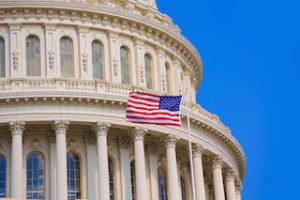Three in five small businesses do not have a business succession plan in place, according to Nationwide’s latest Small Business Survey, released in mid-February.
The online Harris Poll survey among 502 U.S. business owners with fewer than 300 employees revealed that at almost half of those businesses without a succession plan, business owners simply believe it is not necessary (47%). Other reasons business owners neglect succession planning include not wanting to give up one’s life work (14%), not knowing when to create a plan (11%) or who to work with (11%), not having time to develop a plan (11%) and being overwhelmed with government regulations (8%).
“Business owners function at such a rapid pace to remain competitive, it’s no wonder that developing their exit plan and replacement doesn’t seem like today’s priority,” said Kirt Walker, president & COO of Columbus, Ohio-based Nationwide Financial. “Yet, there isn’t a more critical component of an operational plan than a solid business succession plan for providing seamless continuity in a time of crisis or transition.”
Trends have shown many older business owners continuing to work later in life, and as a result they postpone succession planning until closer to their retirement. However, this delay in planning doesn’t enable the business to be adequately prepared for the unexpected, such as disability or loss of a leader.
“There is great urgency to create a plan prior to any changes, not only to keep the business functioning and profitable, but also out of respect for the other leaders, employees and customers who depend on it,” Walker added.
Millennials more likely to have plan
Younger business owners appear to have a better grasp on the importance of succession planning. According to the survey, Millennial business owners are most likely to currently have a business succession plan in place (61%) in comparison with Baby Boomer (32%) and GenX (32%) leaders.
“My assumption is that Baby Boomers believe they’ll work in their current position, driving the company’s success until they retire, while Millennials hope to run multiple companies and show how they’ve successfully positioned the company before they leave,” said Walker.
Seeking wise counsel
Of business owners who have a business succession plan in place, less than half have discussed their plan with a lawyer (48%) or a financial advisor (40%). Many small business owners who have not discussed their succession plan with a lawyer or financial advisor say they have not done so because they do not think it is necessary (48%).
Nationwide suggests otherwise. “Business owners spend so much time and energy building a successful business and they need wise counsel to prepare for transferring a business, establishing a true value for the business and identifying how the seller should be paid for his or her interest,” said Walker. “The time to do all of this is not in the middle of a crisis, when you have zero leverage.”
Financial advisors can serve clients without an established plan by helping clients create one that can potentially:
• Solidify a market for the business
• Create certainty about the price, terms and financing
• Identify triggering events and potential leaders for succession
• Establish retirement income for the business owner
• Provide a sense of security for surviving family members
• Facilitate a smooth and controlled transition
• Establish funds for the purchase of the business
• Reduce the potential for future litigation
“The most successful business succession plans involve an attorney, advisor and accountant in the process from the start,” Walker added. “It’s about protecting and continuing the owner’s life work and legacy.”
Methodology: The Small Business Owner Study was conducted online by Harris Poll on behalf of Nationwide from June 10-23, 2016. Respondents comprised 502 U.S. small-business owners of companies with less than 300 employees, and included 190 Millennials (ages 18-35), 152 Gen Xers (ages 36-50) and 106 Baby Boomers (ages 51-65). Results are weighted to be representative of small-business owners in the U.S. Research participants were drawn from the Harris Poll Online (HPOL) research panel and partner sample. Because the sample is based on those who were invited to participate in the HPOL panel, estimates of theoretical sampling error cannot be calculated. Percentages were rounded to the nearest whole percent. Differences in the sums of combined categories/answers are due to rounding.
About Nationwide: Nationwide, a Fortune 100 company based in Columbus, Ohio, is one of the largest and strongest diversified insurance and financial services organizations in the U.S. and is rated A+ by both A.M. Best and Standard & Poor’s. The company provides a full range of insurance and financial services, including auto, commercial, homeowners, farm and life insurance; public and private sector retirement plans, annuities and mutual funds; banking and mortgages; pet, motorcycle and boat insurance. For more information, visit www.nationwide.com.
This information is general in nature and is not intended to be tax, legal, accounting or other professional advice.













